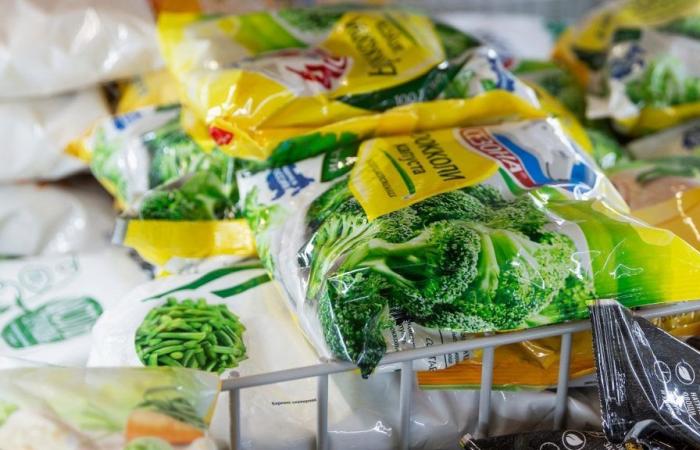A survey carried out by 60 Million consumers revealed that eight families of frozen fruits and vegetables contain pesticides. It seems that frozen products are the most polluted with a high presence of substances banned in France and the EU. Discover the list of products to favor.
Endocrine disruptors, pesticides, controversial products, frozen fruits and vegetables are not all healthy as you think. While it is recommended to eat five fruits and vegetables a day to be in good shape, the opposite effect can occur if you choose products full of pesticides. Indeed, a survey carried out by 60 Million consumers revealed that eight families of fruits and vegetables contain harmful substances banned in France and the EU. To help you eat organic, we offer a list of foods that contain no pesticide residueaccording to an NGO.
Eight families of fruits and vegetables scrutinized
Hundreds of products analyzed
Peas, mushrooms, avocados, melons, salads, carrots, tomatoes, pineapples, apricots, raspberries and others, all these fruits and vegetables have been the subject of careful analysis by 60 million consumers. Whether they are frozen, organic or conventional, the organization has left nothing to chance and everything has been done to research six hundred molecules. Of all the products tested, more than half contain no pesticide residue. As for the rest, thirty-one different molecules were found including fungicides for the majority. The latter are destroyers of parasitic fungi, but also for humans. The investigation mentions that: “The measured levels all remain below the maximum residue limits set by European regulations ” .
Frozen products are the most polluted
All people who are fans of organic products can have peace of mind, because organic fruits and vegetables are less polluted than conventional ones. For example, frozen beans contain 2.5 fungicide residues compared to 0.1 for organic beans. The study mentions that the frozen products are the most contaminated. The association 60 Million Consumers explains that: “Fruits and vegetables are frozen immediately after picking, the degradation of chemical molecules would be slowed”. Remember that last month, this organization denounced the rice most contaminated by pesticides and this time, it is fruits and vegetables which are targeted.
Which fruits and vegetables to favor?
If you are a consumer of frozen products, the association does not recommend consuming frozen raspberries and green beans. On the other hand, you must favor the extra-soft peas of the Bonduelle brand or costs from a local producer. Likewise, the mushrooms of Paris canned minced meats from Repère-Our garden brand and those from Thiriet organic are also an excellent choice of products for all consumers.
Other products to consume
Fans of frozen products can fall back on sliced carrots from Leader Price, those from Auchan and sold in local markets. As for what tomatoes in fruit, the peeled quarters of Picard or the whole peeled canned ones from the Naturalia brand are the best. As for raspberries, those from Driscoll’s available in the fresh section will make you happy. Finally, if you wish to consume apricots and pineapples, choose those offered by St Mamet, Cora or Picard. Here are the recommended frozen products that do not contain endocrine disruptors or pesticides, explains Doctissimo.
Prohibited products
Endocrine disruptors and fungicides
During the investigation, the association discovered that four types of residues banned in France and the European Union were identified in different families of fruits and vegetables. THE carbendazimeand pesticide interdit over the past ten years, has been detected in at least fourteen products, especially green beans and peas. Already last month certain fruits and vegetables were singled out in the report by Générations Futures and Pesticide Action Network Europe PAN.
The discovery of two disruptors classified as dangerous
The study also detected the presence of two endocrine disruptors classified as dangerous. These include iprodione and line. Linuron, a herbicide present in four samples of carrots from France sold in the fresh produce section. As for theiprodioneits presence was identified in two samples of raspberries, one of apricots and one of green beans.






